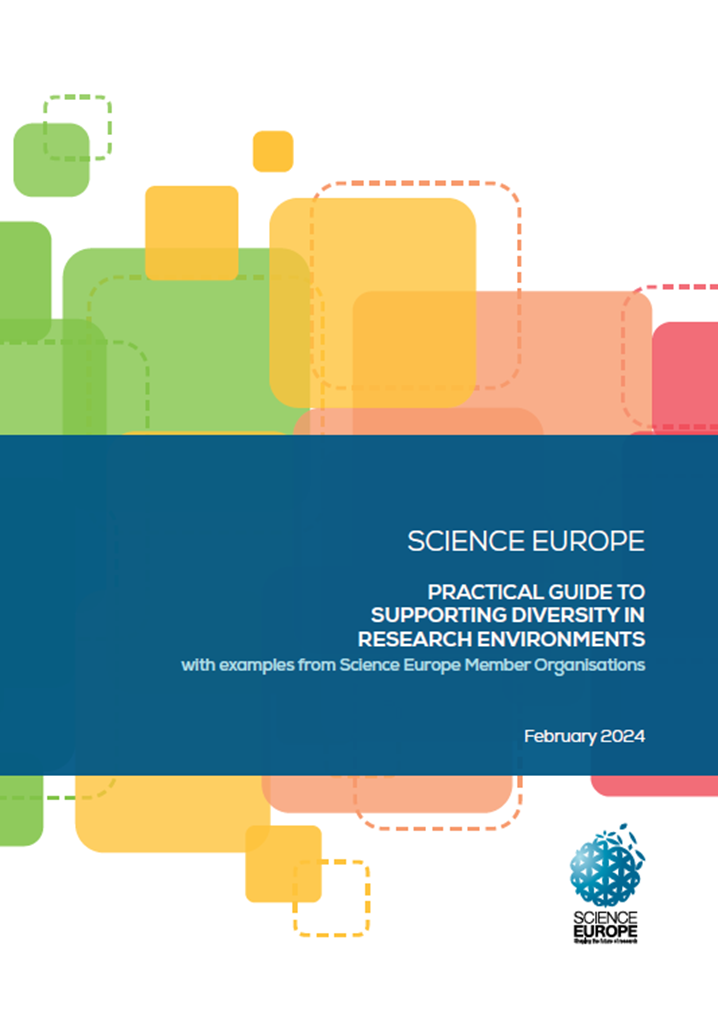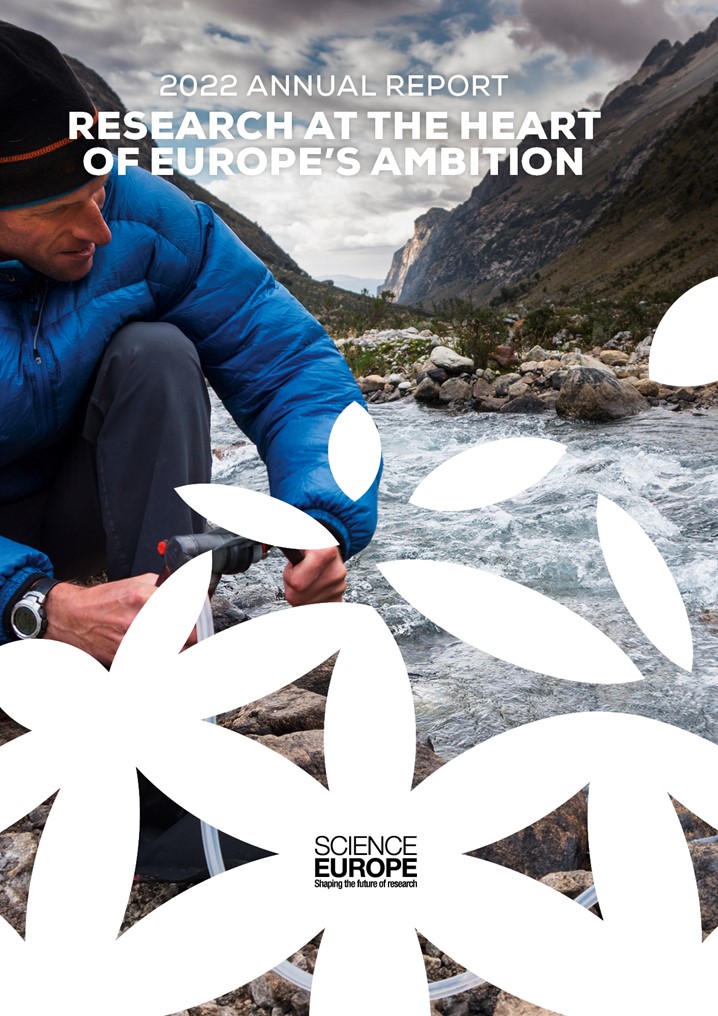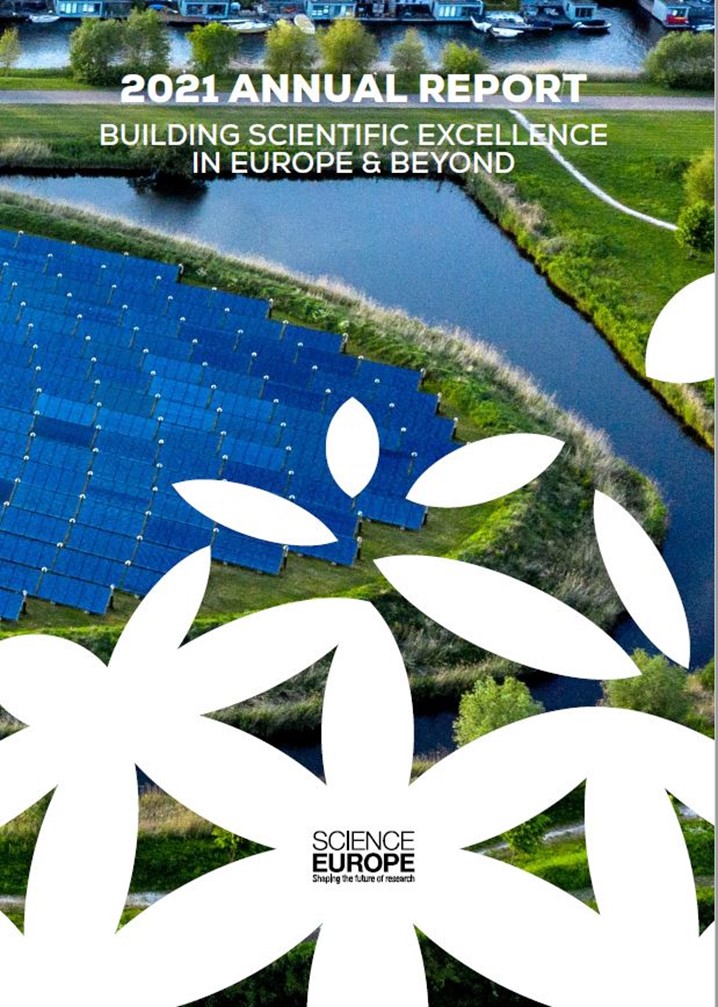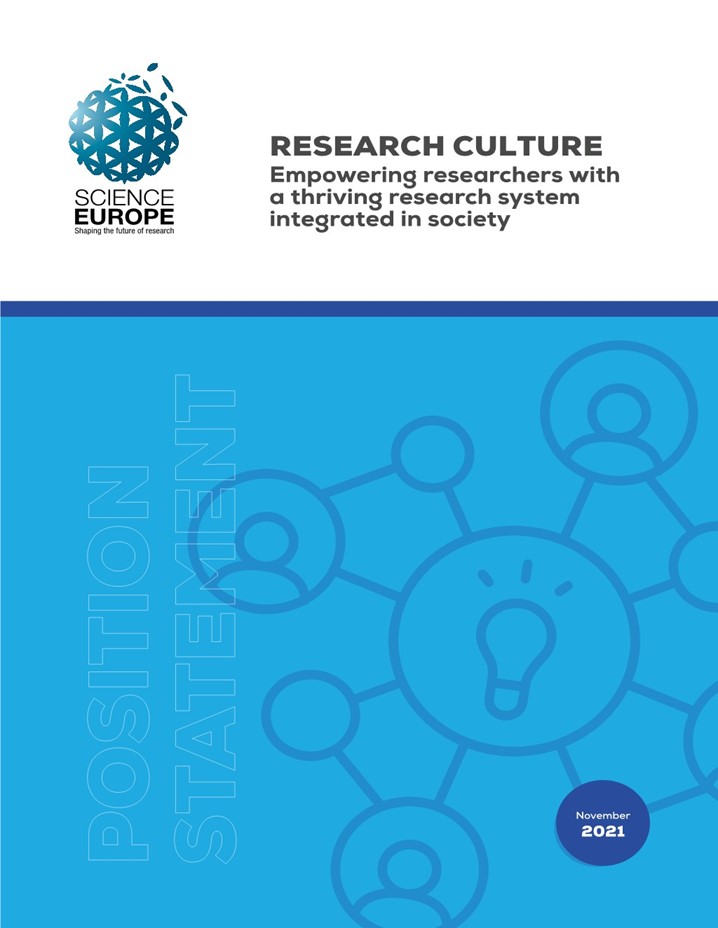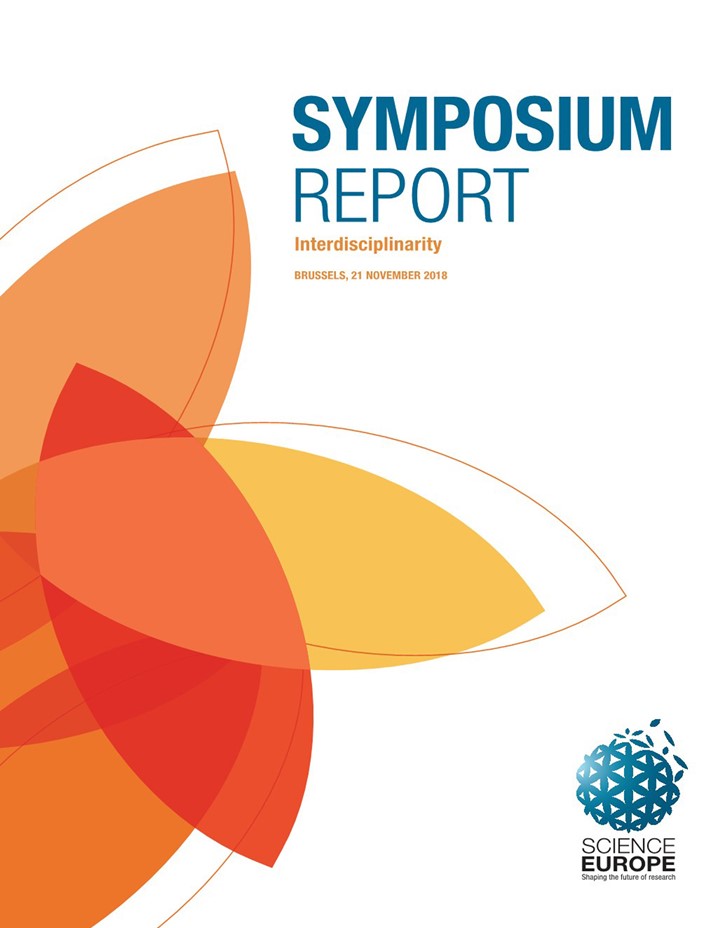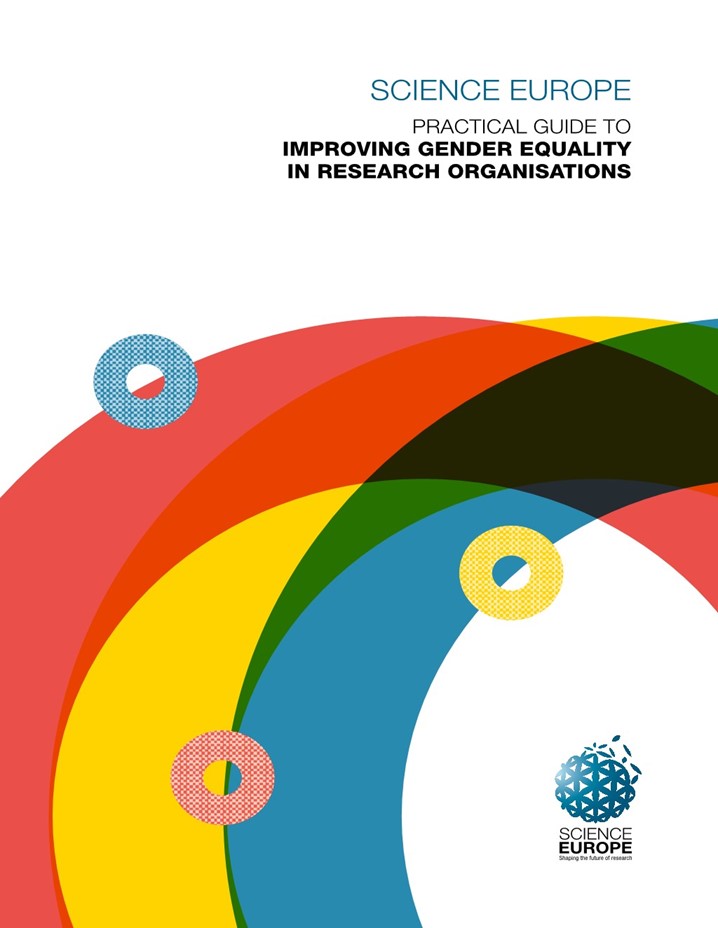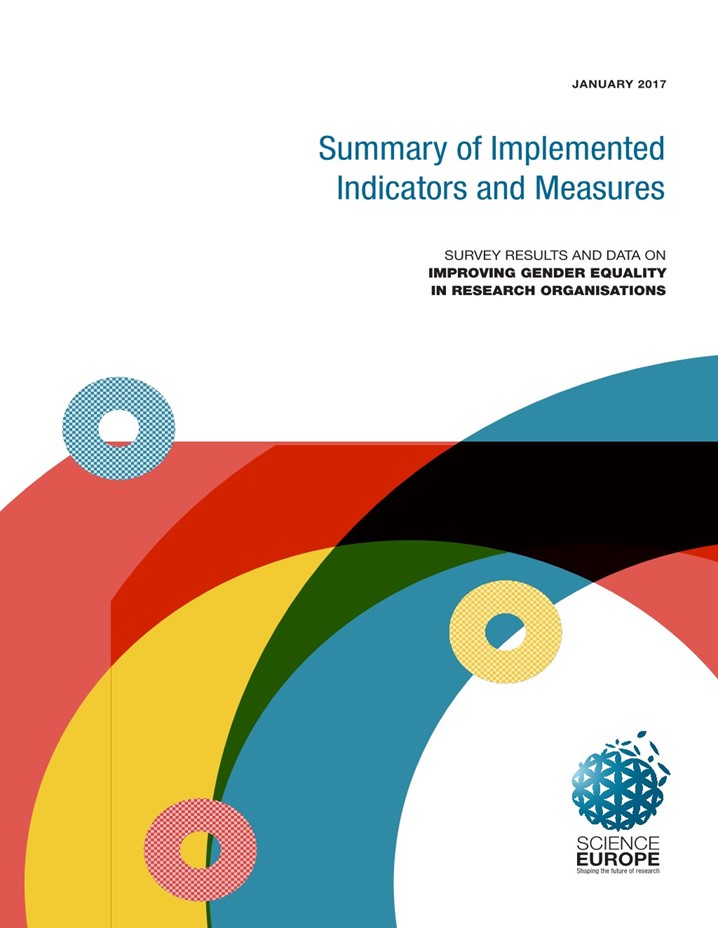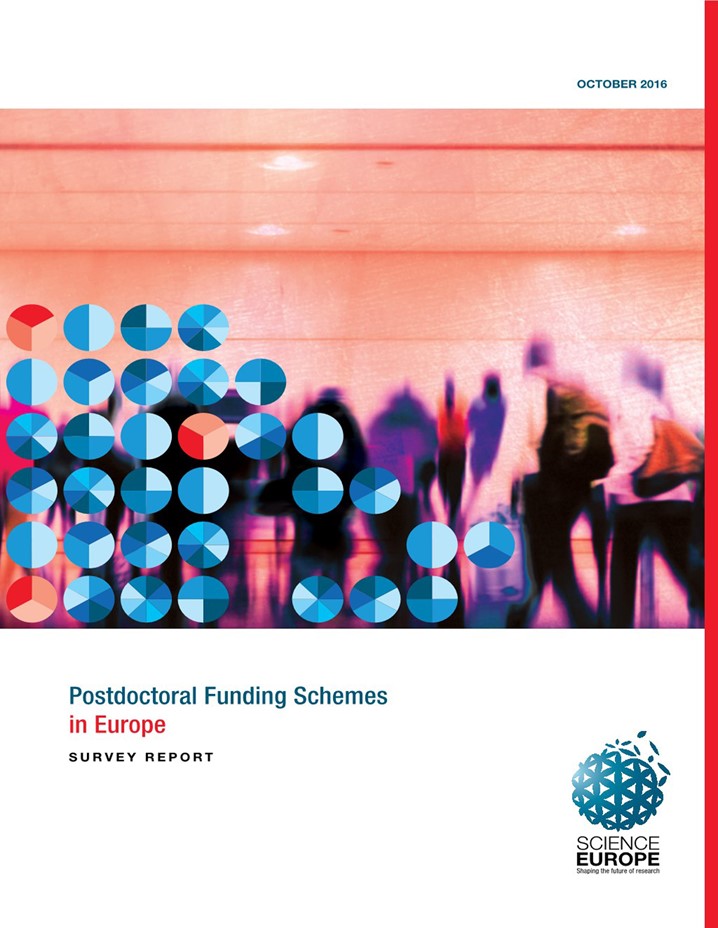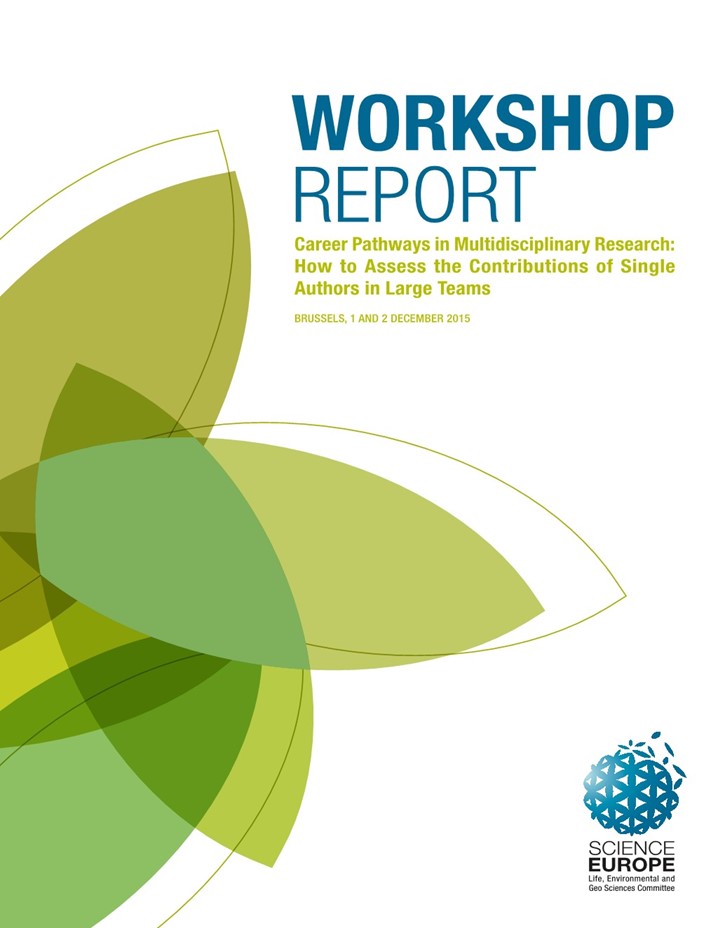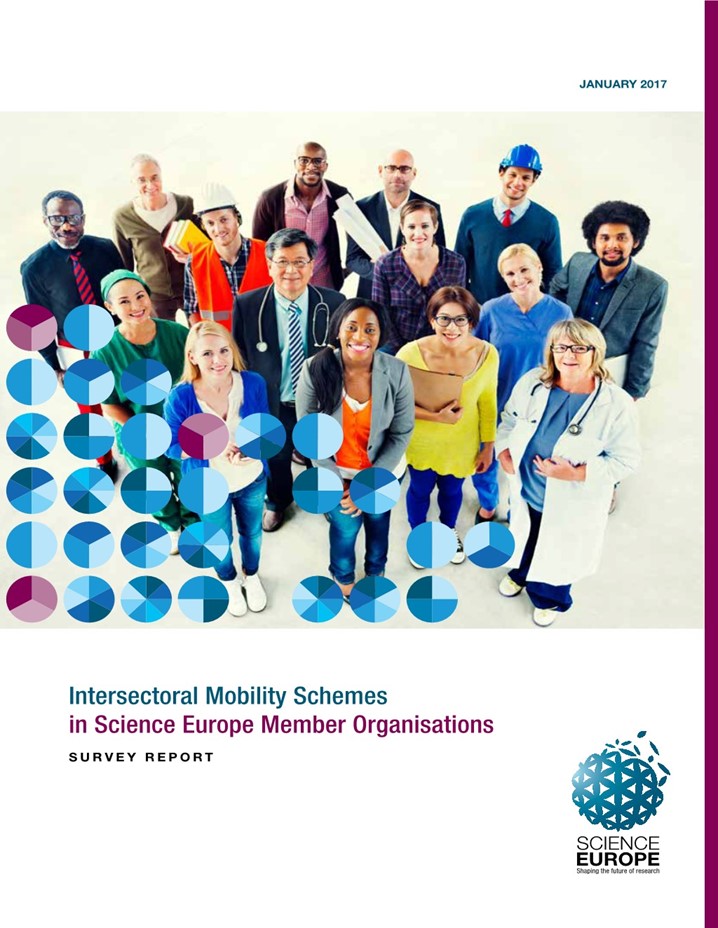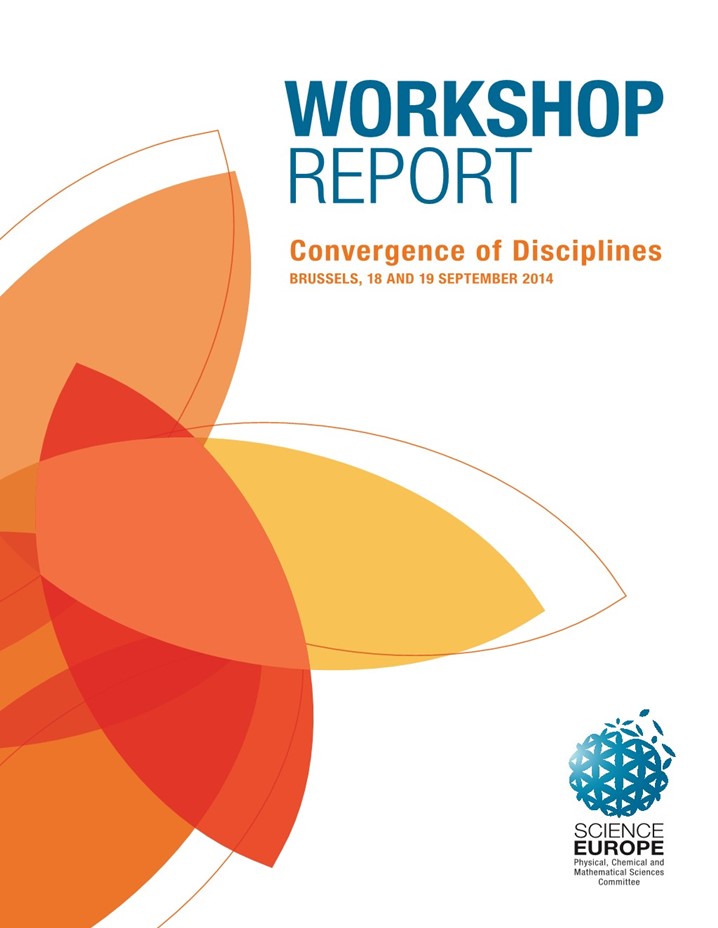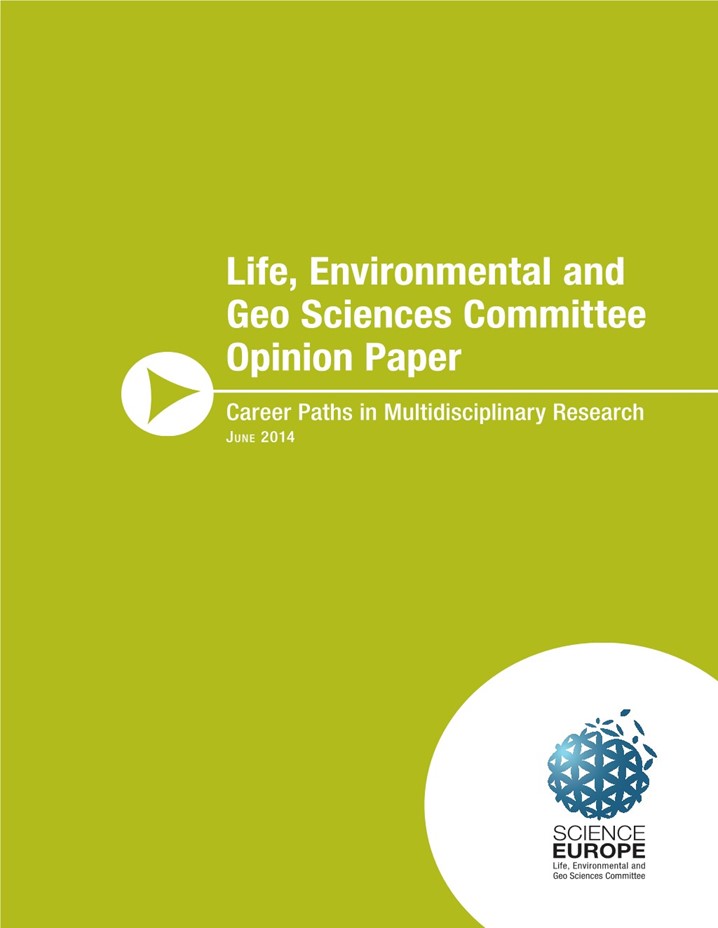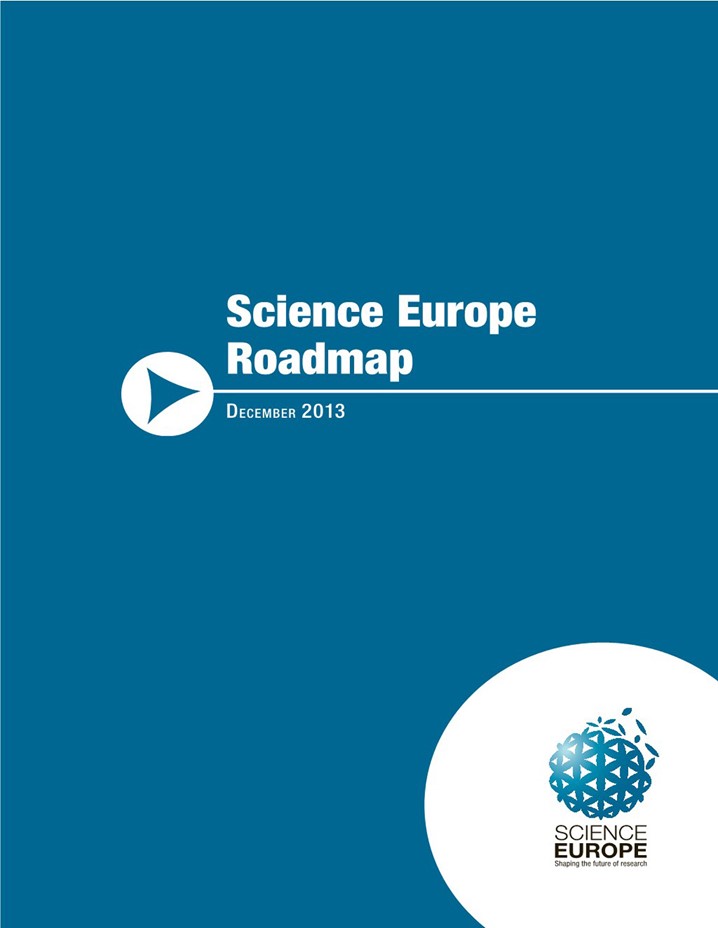Member-only content is available on this page. Please log in to view this content.

Our resources
Discover Science Europe’s comprehensive library of resources, including the most recent publications, briefings, and position statements.
13 resource(s) found
Practical Guide to Supporting Diversity in Research Environments
Science Europe’s new ‘Practical Guide to Supporting Diversity in Research Environments’ highlights key findings from a membership survey conducted in 2023, showcases good practices, and provides practical recommendations across topics such as positive action measures and the collection and use of diversity data.
Research at the Heart of Europe’s Ambition – 2022 Annual Report
In 2022, Science Europe made significant contributions in various areas, including research culture, research assessment, open science, EU framework programmes, the green and digital transition, and science communication.
Science Europe 2021 Annual Report
For Science Europe, 2021 was a very important year: the association celebrated its 10th year of existence. Founded in 2011, it has grown into a respected and influential voice in the European research policy debate. Moreover, we published a new Strategy Plan for 2021–2026, which maps our collective objectives and sets a specific yet flexible action framework over the next five years.
Statement on Research Culture - Empowering Researchers with a Thriving Research System
The new statement on Research Culture envisages an ERA that focusses on the quality of research and its processes, supports scientific freedom, and promotes social diversity and inclusion, acknowledging that these conditions will, in turn, foster a productive research system.
Science Europe Symposium on Interdisciplinarity
Interdisciplinarity is increasingly used to tackle complex scientific questions and address large societal challenges. At the same time, the evaluation of interdisciplinary research proposals poses a set of problems, ranging from missing common standards and criteria to shortages of peer reviewers with experience in evaluating interdisciplinary research. At its third Symposium, Science Europe and its Scientific Advisory Committee brought together researchers and other experts experienced in interdisciplinarity with high-level representatives from Science Europe’s Member Organisations, who fund and perform such research.
Practical Guide to Improving Gender Equality in Research Organisations
Research organisations have a crucially important role to play in addressing gender inequality; not only for the benefit of their own ecosystem, but to contribute to progress in wider society. This practical guide sets out good practice examples and guides the further development of context specific approaches including how to avoid unconscious bias in peer review processes, how to monitor gender equality, and how to improve grant management practises.
Summary of Implemented Indicators and Measures: Survey Results and Data on Improving Gender Equality in Research Organisations
This document complements the ‘Practical Guide to Improving Gender Equality in Research Organisations.’ It provides the qualitative and quantitative background data on which parts of the guide are based and measures the implementation of gender equality measures within Science Europe Member Organisations.
Postdoctoral Funding Schemes in Europe
The postdoctoral period is a critical phase in a researcher´s career: it is when (s)he chooses whether to pursue a scientific career, and succeeds in achieving that goal, or not. Science Europe has carried out a mapping of support opportunities for postdoctoral researchers, or ‘postdocs’, to improve understanding of what funders do to support researchers’ careers after the completion of their PhD, and to learn whether existing funding schemes can be improved in terms of career support.
Career Pathways in Multidisciplinary Research: How to Assess the Contributions of Individual Members of Large Teams
Scientific research increasingly relies on large collaborative, multi-disciplinary, and interdisciplinary research teams – often working across borders and across sectors – to address big societal questions. This report considers how research organisations can best support collaborative, multi-disciplinary, and interdisciplinary research teams. It also considers how can they allocate appropriate credit for research input and better evaluate multidisciplinary research.
Intersectoral Mobility Schemes in Science Europe Member Organisations
Intersectoral mobility of researchers is gaining political momentum in Europe, with more interest in bringing in the competences that characterise researchers into public, private, and not-for-profit sectors. This survey report looks at the diversity of measures that are in place within Science Europe Member Organisations to enable researchers to be more mobile across different sectors of employment
Workshop report: Convergence of Disciplines
This workshop was convened by the Science Europe Scientific Committee for Physical, Chemical, and Mathematical Sciences to explore issues surrounding the concept of ‘convergence’ and its potential relevance to, and implications for, research funding organisations and research performing organisations in Europe. The aim of this exploratory workshop was to provide a forum for debate and discussion, rather than to arrive at specific conclusions or formulate policy recommendations. The workshop, attended by some 45 delegates, took the following format: four keynote speakers with expertise relevant to the topic of convergence gave presentations, followed by three short interventions. Delegates were then split into three groups which sat in parallel to explore the areas of governance, tools and infrastructures, and training and careers. Again this was followed by an open discussion.
Career Paths in Multidisciplinary Research
In this paper, produced by the Scientific Committee for the Life, Environmental and Geo Sciences, the Committee highlights the lack of clear evaluation metrics for scientists working in multidisciplinary teams. The Committee devises also concrete recommendations to contribute to the elaboration of an appropriate evaluation framework and suggests four main categories of indicators that demonstrate success in multidisciplinary and collaborative research: data generation, analysis and knowledge management; the development of enabling tools for data handling; the added value of collaborative research, and acknowledging contributions in bibliometic analysis.
Science Europe Roadmap
The Roadmap, approved by the Science Europe General Assembly in November 2013, is Science Europe’s action plan to contribute to the elements of a successful research system. It acts as a framework for voluntary collective activity, providing a long-term strategy for the association. The ‘Priority Action Areas’ are those in which Science Europe members believe that there is a potential to achieve tangible and substantive progress, and where they can add real value by working together.

